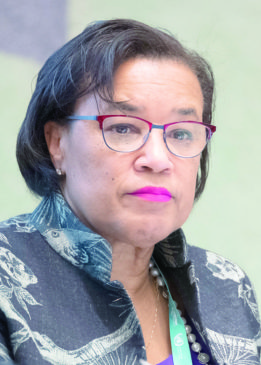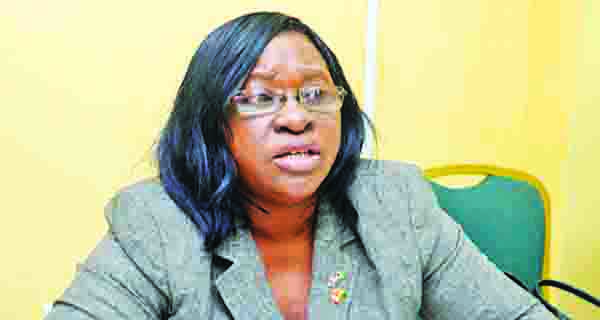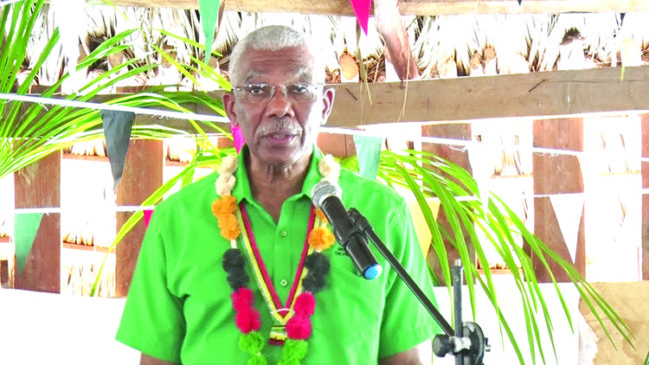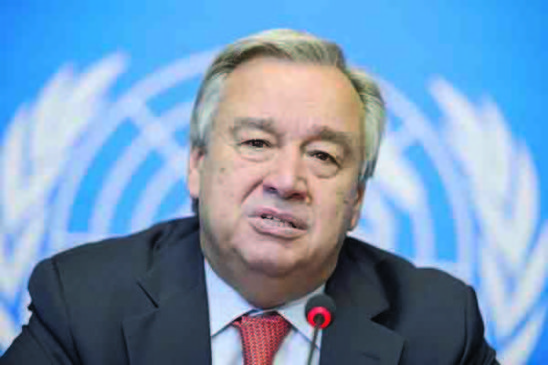– Guyana’s foreign minister says Govt will remain in place until new president is sworn in




While many have expressed criticism for the government’s delays before going to the polls, Foreign Affairs Minister Dr. Karen Cummings is urging that President David Granger be held to his word that he will deliver elections on March 2, 2020.
Dr. Cummings made this pronouncement on Wednesday, during her first ever press conference as Minister at the Ministry of Foreign Affairs. According to the Minister, the President ought to be held accountable by the public to follow through with elections.
“You would recall that our executive President would have said that he is going to, not dissolve parliament, but he would stay in government until another President is sworn in. We don’t want a headless chicken, who will run the country? There’s work to be done, public servants need to be paid and so on.”
“We’re all aware of the situation. We don’t want to aggravate the situation. So we have said, we (had) our right to take it to the different levels of the judicial system. We respect the rule of law, though there are various interpretations. But we recognize and the President has agreed to his (interim status). He has announced a date and whatever he says, you can hold him accountable to, that the date for elections will be March 2.”
Dr. Cummings noted that the March 2nd date was set by the President after he would have consulted with GECOM Chair, retired Justice Claudette Singh. She called it the most plausible date for credible elections.
International pressure
It was only on Monday that the Commonwealth became the latest in a line of organizations to urge the President to call elections immediately. Similar calls also came from the United States, British and European Union diplomatic representatives. According to Dr. Cummings, however, the pressure put on the government by the international community for constitutional compliance was “uncalled for.”
She noted that having met with United Nations Secretary General Antonio Guterres and Commonwealth Secretary General, Baroness Patricia Scotland, in New York during the general assembly, the government explained its side of the constitutional upheaval. According to Dr. Cummings, there was no need for “agitation” or sanctions from the international community.
“I spoke to the Secretary General of the UN and he said ok, I know you have hiccups and so on. But we were happy to say that in Guyana, there was no war. We have hiccups here and there, but there’s no (upheavals), or lives being lost here and there. So I don’t think we need sanctions at this point in time. Because we’re very peaceful citizens.”
“We’re going along our business, who’s going to the market, who’s going to work. So thank god we’ve maintained the peace… we met with all stakeholders and members of the diplomatic corps. And the President would have outlined the way forward. So all this agitation is uncalled for. We are a government and we remain in power until another President is sworn in. March 2, wherever the chips fall, that is it.”
Before President Granger issued his elections proclamation on Monday, international pressure was continuing to mount on him and the government. The United States, United Kingdom and the European Union, as well as the Commonwealth, all issued statements urging the naming of an election date.
Soon after, the UK High Commission took the step of advising that continued funding for two infrastructural projects were on pause. Design work on the Seawall rehabilitation project and the Linden to Mabura road was previously funded from the UK Caribbean Infrastructure Fund.



